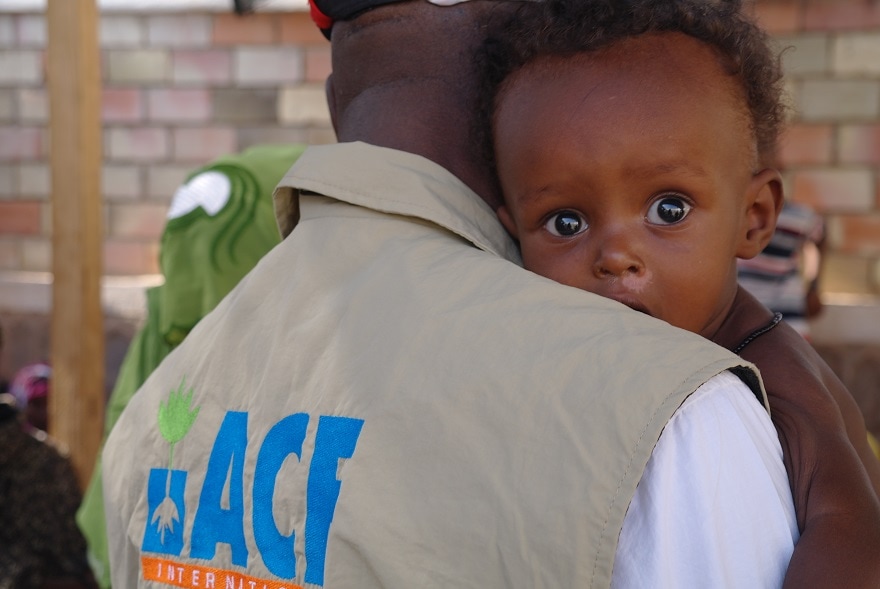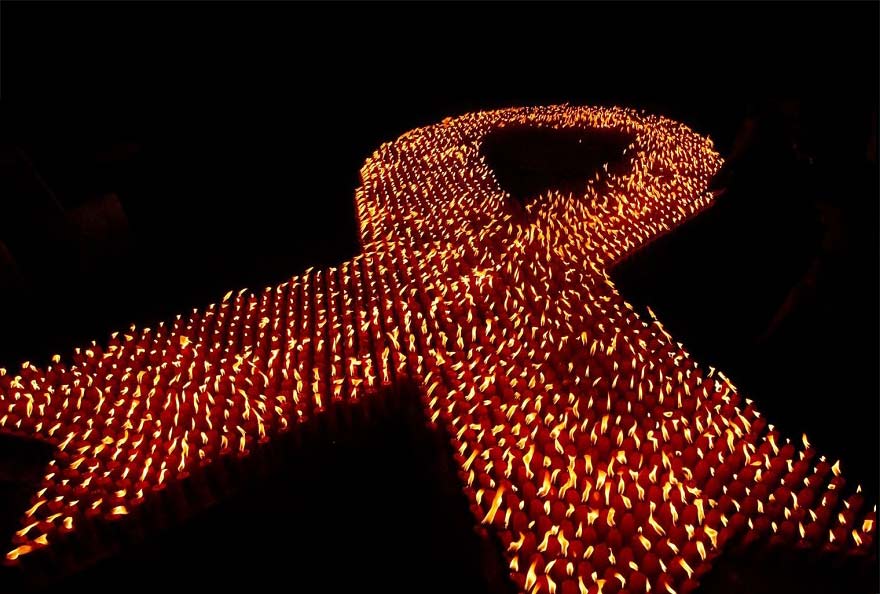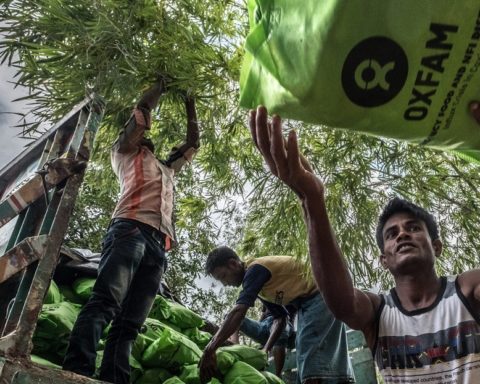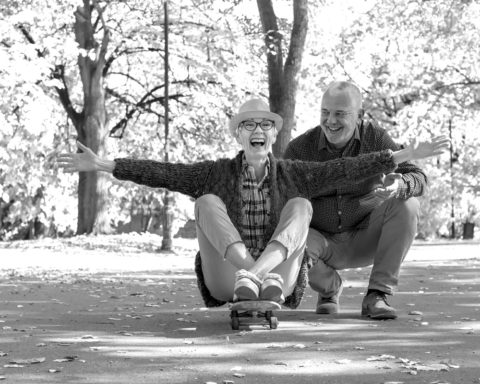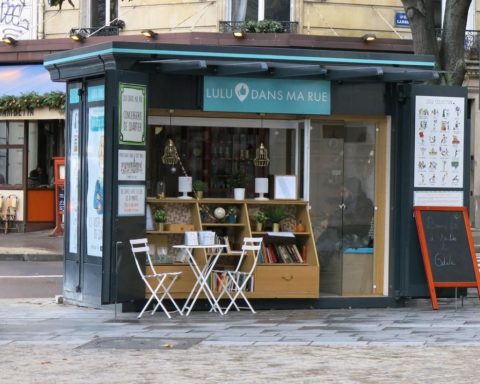Communautés : ce terme désigne des petites entités, fondées sur une croyance commune, des pratiques communes, des idées communes, enfin quelque chose de commun. Il désigne dans son usage contemporain et la plupart du temps des groupes minoritaires. Minoritaires et néanmoins structurés au sein de la « société », qui elle, brasse du divers, du pluriel, et qui autorise qu’en son sein se regroupent des individus qui partagent quelque chose.
Communauté comme repli ou comme réseau
Définition fort large, puisque la communauté fait signe tout à la fois vers le repli autour de valeurs ancestrales, vers la régression à l’identique, vers la négation de l’individualité, et d’un autre côté, vers le partage de valeurs minimales et démocratiques, autour de l’idée de solidarité, sans perte de liberté.
Si les religions, à leur naissance, donnèrent lieu à la formation de communautés (communautés chrétiennes, communautés musulmanes, etc.), c’est en tant qu’elles sont aujourd’hui à nouveau minoritaires qu’elles engendrent ce repli. À part quelques sectes d’illuminés chrétiens, il n’est plus à proprement parler de communauté chrétienne au sens où elle ferait concurrence à la société nationale à l’intérieur de laquelle elle s’inscrit. Elle peut être parallèle, mais pas en opposition.
En revanche, ce qu’on a pu dénoncer comme « communautarisme » est bien le repli autour d’une religion commune, à travers une pratique cultuelle stricte, et dont l’excès désigne précisément le conflit avec la société à l’intérieur de laquelle ces communautés se reforment. Dès lors qu’il y a conflit entre communauté et société, la communauté dérive vers son penchant naturel, le communautarisme.
 Communautarisme
CommunautarismeOr aujourd’hui, pullulent sur la Toile de nouvelles communautés censées s’opposer à toute forme de communautarisme, ouvertes autant que la Toile peut l’être, c’est-à-dire au quasi infini ! Et il est significatif que les internautes eux-mêmes se désignent comme une communauté. La communauté des internautes en réseau. Ainsi, c’est le réseau qui tend à se confondre avec la communauté.
On assiste donc à deux phénomènes qui semblent à première vue opposés et qui prennent chacun le nom générique de communauté : la communauté comme repli, qui conduit au communautarisme, et la communauté comme réseau horizontal et ouvert. Ce double retour à la « communauté » sous deux formes apparemment aux antipodes l’une de l’autre, est-il accidentel ou signifie-t-il quelque chose ?
Communauté comme fratrie et comme identité du même
La communauté remet au centre une valeur sans doute perdue de notre République censée pourtant s’y adosser : la solidarité. Et la solidarité a vite fait de rejoindre la fraternité, inscrite sur nos frontons. Or lorsque la fraternité se met à son tour à dériver de son sens symbolique vers un sens plus littéral, voire plus religieux, elle donne lieu à une expression qui désormais fait un peu peur : les « frères ». Frères chrétiens, frères musulmans : pourquoi le lien entre les frères serait-il plus enviable que des liens sans consanguinité, sans « filiation ». L’histoire nous a appris que les Fratries étaient les premiers lieux de massacre, de vengeance et de jalousie. Mais il semblerait que les fratries soient aujourd’hui remises au goût du jour.
 Communauté
Communauté
La fratrie réinstalle une frontière, entre les « autres » et « nous », qui vient recouvrir la distinction entre la sphère publique et la sphère privée, mais au bénéfice du seul privé : la fratrie est un lien qui doit l’emporter sur le lien à la nation, aux institutions, aux autres qui n’appartiendraient pas à la fratrie. La fratrie, c’est la famille, le privé, qui biffe toute possibilité de société, en tant qu’elle désigne l’autre de la famille.
Le déficit d’appartenance qu’a généré l’exclusion d’une partie de la population française dans sa relégation aux ghettos et autres formes d’enfermement, a récréé des appartenances, souvent illusoires, souvent fictionnelles, puisqu’elles se font autour de « racines » prétendument communes, de langues pourtant rarement maîtrisées, à part par les chefs religieux, qui en retour parlent souvent mal de français – c’est le cas de nombreux Imams.
On connaît la structure et le processus d’exclusion, ce qui nous intéresse ici, est l’idée d’une communauté, dont les valeurs partagées sont celles du rejet, et à l’intérieur de laquelle, c’est l’identité du même qui prime, et non la diversité. Car si la communauté en tant que modèle l’emporte sur la société, c’est pour les religieux radicaux, parce qu’elle privilégie l’identité. Non pas l’identité au sens d’une singularité riche de ses contraires, mais l’identité au sens du même – idem. Se dé-singulariser pour devenir identique, c’est bien le modèle d’individu que la société charrie, que ce soit à travers la consommation qui standardise, ou son rejet, qui standardise tout autant.
Communautés de la Toile, usagers contributeurs
Pour ce qui est des communautés d’internautes, il ne semble pas, de prime abord, qu’on ait affaire à cette logique du même. Certes, un même refus de la solitude, de l’isolement, d’une certaine forme de politique les rassemble. Pourtant, les étapes d’une communauté virtuelle obéissent à une terminologie relativement proche et à la même logique que celle qui mène à une communauté sectaire ; on en trouve une définition dans cette grande communauté virtuelle qu’est Wikipédia : « Une relation entre un individu et une communauté virtuelle évolue : il commence par être un badaud (observateur ou lurker), puis il devient un novice (il commence à participer), ensuite il devient un habitué, après il sera peut-être un leader, il finira en étant un senior (qui se désintéresse peu à peu) ».
 3D social networking
3D social networking
Le membre de la communauté est en réalité un usager qui ne s’en tient pas seulement à consommer, mais aussi à contribuer. La communauté désigne alors plutôt un système d’interactions, et s’il y a quelque chose de commun, c’est, outre le contenu partagé, la pratique elle-même. C’est parce que nous publions sur notre page Facebook, partageons des liens envoyés par d’autres, relayons, likons, etc., que nous faisons partie de la communauté. Est-ce pour autant des pratiques communautaristes, voire communautaires ?
On trouve une autre typologie dans le même article de Wikipédia, sciemment utilisé comme source : la communauté peut être stricte et relativement classique au sens où ce sont des internautes qui partagent des valeurs, on parlera alors de « noyau dur » :
À l’intérieur, on y trouve les militants : les adeptes, les puristes mais surtout les plus engagés, de tous les combats, utilisant un niveau de langue soutenue (corrigeant systématiquement les fautes d’autrui).
C’est à nouveau la terminologie de la secte qui s’invite. Au-delà de ce cercle, il y a les « indécis » qui s’opposent, critiquent, sans pour autant changer de « camp », puis les « caméléons », nomades qui passent d’un blog à l’autre. Au fond, on retrouve l’idée d’une communauté autour du même, et de l’exclusion : s’il y a partage, c’est dans un cercle et pas au-delà.
Communautés de la Toile, rencontres programmées
L’une des conséquences du foisonnement des communautés sur le Net, ou d’une grande communauté comme Facebook, à l’intérieur de laquelle néanmoins se multiplient de petites communautés (« mon » Facebook) est finalement l’absence de « mixité » reconduite sur un espace dont on aurait pu penser qu’il permet au contraire la rencontre des contraires, des lointains, des différents. Ne se rencontrent que ceux qui partagent déjà « les critères sociaux linguistiques ». Autrement dit, les cercles se superposent sans se croiser, les points d’intersection sont rares et contingents.
Si le modèle communautaire prolifère dans les différentes strates de la société, que ce soit par le prisme religieux ou le prisme des nouvelles technologies, l’un n’excluant pas l’autre, n’est-ce pas le signe d’une faillite démocratique ?
Si l’on associe volontiers la solidarité, la fraternité, et la proximité à la communauté, valeurs en berne, et dont chacun ressent le manque, il n’empêche que la communauté comme modèle « social » ne fait que reconduire les séparations, et semble très hermétique à toute forme de mixité réelle. Or la démocratie occidentale fonctionne sur le modèle du contrat : nul contrat dans une communauté, le partage des valeurs prime, les individus ne s’y manifestent pas comme « sujets », porteurs d’une voix. Ils s’y manifestent comme frères. Le frère vs le sujet ? Cette dérive a-t-elle quelque chose à voir avec l’absence de père ?
De la communauté à la plateforme citoyenne
Toujours est-il que l’une des nombreuses conséquences politiques de ce déplacement est la mise en question des plateformes citoyennes : elles ont vocation a dépasser les clivages, au profit du bien commun, à être « transpartisanes » en cassant la logique hiérarchique et peu démocratique des partis, à repenser le modèle démocratique. Il ne faudrait pas qu’elles redeviennent des communautés, excluant de ce fait le dialogue réel des altérités. Car si elles cèdent au modèle « communautaire » en vogue sur le Net, et dans la société en général, elles se privent de leur légitimité. Comment dès lors faire en sorte que ces plateformes soient réellement citoyennes et non communautaires ? Comment faire en sorte que le sujet reprenne le pas sur la communauté, sans pour autant renoncer à la communauté à condition qu’elle soit seconde, partielle, et non excluante ?

Mazarine Pingeot est Professeur agrégée de philosophie, Université de Paris 8 Vincennes Saint-Denis
La version originale de cet article a été publiée sur The Conversation.


